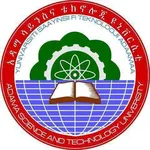In the coming summer term, the Institute of Automotive Technology (FTM) will once again provide the opportunity to answer interesting open questions in the field of future mobility to motivated students. The focus of this program is on practical work up to and including prototyping. All participants are encouraged to submit a student thesis (Bachelor/Semester/Master Thesis) documenting their individual contribution.
Project 1: Sustainable Urban Mobility - PRT
Increasing urbanization yields continuously growing demand for mobility in cities. Therefore, innovative solutions are necessary to satisfy this need sustainably. Due to its consumption of resources the motorized private transport is not a development opportunity for future cities. Established forms of public transport cannot offer privacy and comfort as a private car. In addition, public transport is often not profitable due to high construction costs and insufficient efficiency apart from peak hours.
A promising solution approach is Personal Rapid Transit (PRT) – autonomous, electrically driven vehicles operating on-demand on an own infrastructure. Thus, a high capacitive, efficient public transport system is developed which is superior to private cars regarding comfort and travel time.
The integration of a new mobility form in a city raises a lot of questions and difficulties:
- Which transportation system allows to move people and goods efficient and resource-saving within cities?
- How can existing infrastructure be reused for a new mobility system?
- Which areas offer the biggest benefit for mobility, which should be turned into living areas?
- What are the optimal operating strategies for a PRT system?
Apart from this list, there are many more questions regarding the topic PRT which want to be solved. If you want to design the mobility of future cities in cooperation with students from University Bologna, apply for this globalDrive project!
Project: Mobility in Sub-Saharan Africa
Access to mobility is central to the living standards of the rural population in Sub-Saharan Africa (SSA).
All types of transportation play an important role in this regard, whether transporting agricultural products from the farmland to the nearest market, commuter transportation, or transportation to obtain everyday goods. The consequences of non-existent mobility for local society are far-reaching and can affect income diversification, health care and basic services for the population.
Together with the German Society for International Cooperation (GIZ), this GlobalDrive project seeks to evaluate the challenges and opportunities of electric mobility for rural regions of SSA and to develop a holistic, regionally adapted mobility concept for two locally deployed aCars. For this purpose, the teams work on solution-neutral and relevant questions in an exciting context, with the aim to evaluate existing mobility, to develop new services and to determine the synergy potential of electric mobility carriers, e.g. by development of novel energy storage systems. By focusing on electric vehicles, the solution space gains corresponding diversity as the required energy and corresponding storage generates additional local value.
This year our project will take place in cooperation with the University Institut National Polytechnique Félix Houphouët-Boigny (INP-HB) in Côte d'Ivoire and includes a fully funded two-week stay abroad.
Contact Person
If you have any questions regarding the project feel free to contact us:
Sustainable Urban Mobility - PRT
TUM Institute of Automotive Technology: Franziska Neumann & Felix Gotzler
University of Bologna DICAM: Joerg Schweizer
Mobilität in Sub-Sahara Afrika
Clemens Pizzinini, Philipp Rosner, David Ziegler
Application
Your complete set of application documents comprises of one single PDF file including
- Filled in form of application: here
- CV
- Transcript of records of current degree program
Please send the document to s4fm.ftm(at)ed.tum.de
Information event: 02.02.2022, 6-7 pm,
Meeting Link | Meeting-ID: 651 0289 7889 | Kenncode: 408547
Application deadline: 15.02.2022
Interviews: 01.03.2022





